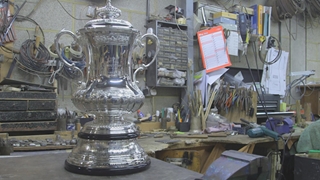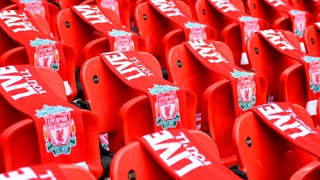
The FA Challenge Cup, the most famous domestic cup competition in the world, was effectively born on this day in 1871.
Charles Alcock, a Sunderland man educated at Harrow School, was the secretary of The Football Association for a quarter of a century (1870-1895) and was the founding spirit of both The FA Cup and international football. We owe him a great deal.
Alcock, then 30, remembered playing in an inter-house ‘sudden death’ competition at Harrow and recognised that the idea could be employed on a much grander scale. He put his proposal for a national knockout tournament to an FA meeting at the offices of the Sportsman newspaper in Boy Court.
Most FA Cup wins
Arsenal: 11
Manchester United: 11
Tottenham Hotspur: 8
Aston Villa: 7
Liverpool: 7
Chelsea: 7
Blackburn Rovers: 6
Newcastle United: 6
Alcock’s proposal was swiftly agreed and The Cup was born with these 29 minuted words: “That it is desirable that a Challenge Cup should be established in connection with the Association for which all clubs belonging to the Association should be invited to compete”.
The Cup rules were drafted and 15 clubs had their entries accepted to the first competition: Barnes, Civil Service, Clapham Rovers, Crystal Palace, Hitchin, Maidenhead, Marlow, Queen’s Park (Glasgow), Donington Grammar School (Spalding), Hampstead Heathens, Harrow Chequers, Reigate Priory, Royal Engineers, Upton Park and the Wanderers.
Of course they needed a trophy. This was designed and made in silver by Martin, Hall and Company for £20. It was a stubby, heavily embossed pot, about 18 inches high, with two curved handles and the figure of a player on its lid. Here was the original FA Cup, soon to be known as ‘the little tin idol’.
Bryon Butler wrote: “Every season it touches, directly, the heart of hundreds of cities, towns and assorted dots on the map; and it enchants scores of millions, all over the globe, by way of television and radio.
"It offers fantasy, passion, democracy, warfare, tradition, ritual, instant fame and handy profit in one big and irresistible package. It is a band of gold in the fabric of a sporting nation”.
Alcock, with his thick Victorian moustache and high collar, was a great man. He was a player, referee, administrator, committee man, author and journalist. He was talented and respected enough as a player to captain England and efficient enough as an administrator to be secretary of The Football Association and of Surrey County Cricket Club at the same time.
He actually played in the first FA Cup Final, captaining the Wanderers to a 1-0 victory over Royal Engineers before a 2,000 crowd at Kennington Oval.
The competition that was his brainchild encouraged many more clubs to become members of The FA. Why? They all wanted to play in The Cup!








